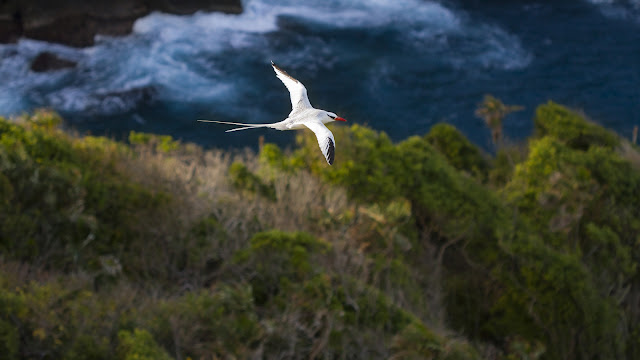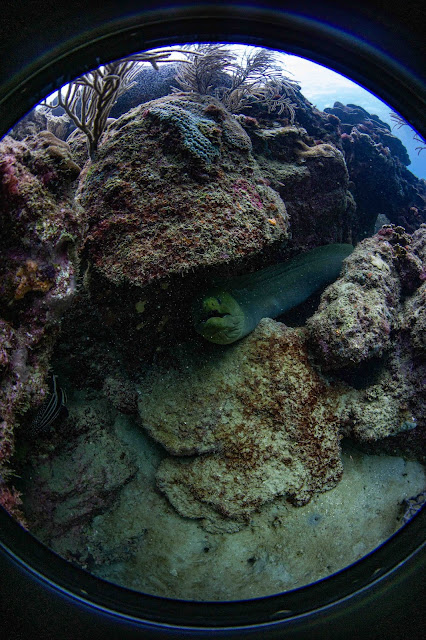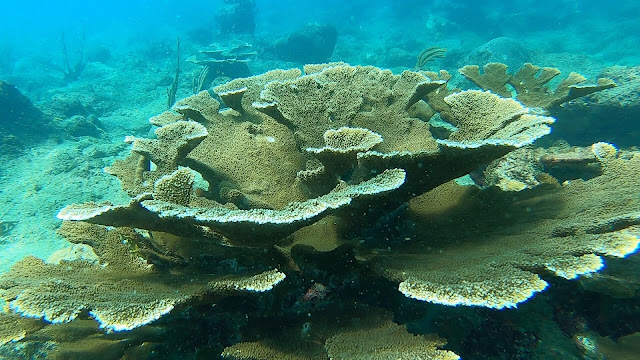Connecting the dots from Sea to Shore
Dr Anjani Ganase urges leaders and influential sectors in the society to consider the health of our ocean backyards. Connect the dots, she says, there is an urgent need to link land-based lifestyles with the life of the ocean, indeed the life of the planet.
The Decade of Ocean Science for Sustainable Development (2021-2030) is upon us: will we use it to stem the degradation and revitalize the planet’s most precious resource? UNESCO has outlined a roadmap to improve the health of the ocean and to manage resources sustainably. Major challenges include understanding how marine pollutants impact ocean systems in order to mitigate impact, conserve marine biodiversity, and harvest the ocean sustainably to ensure food security. Further, could we build the capacity of ocean dependent states to address societal issues through ocean awareness? For the Caribbean, we need to build community resilience and disaster management with the use of early-warning systems against hurricanes, tsunamis and even sargassum. Above all the Ocean Decade must change the relationship of humanity with the ocean to one that is respectful, responsible and sustainable.
 |
| Rocky Point, Tobago at low tide. Photo by Anjani Ganase |
Small Islands and the Ocean
Prime Minister Mia Mottley of Barbados refers to Caribbean island states as large ocean nations with more than 90% of each national jurisdiction being made up of ocean territory. Yet, how much do we actually know about our ocean backyards? Students and adults alike are always shocked to find out that our economic exclusion zones might be fifteen times the size of the land mass. The relationship of our peoples with the sea is only a few hundred years old. Most of us were brought here during the age of colonization from countries that resided on large continents. Very quickly, we adapted the models from land to ocean industrialization and capitalization, over 100 years now moving exploration (oil and gas) into the sea. We’ve been exploiting our oceans before we actually understand what exists below the surface. To this day, the dialogue of our leaders continues to reflect this one-sided relationship, despite the growing realisation that collapsing ocean habitats affect job and food security, and contribute to health and welfare issues, and crime not only in coastal and marine communities.
National education and ocean literacy
Ocean literacy refers to understanding how the ocean works, its natural ecology and our influences on this ecology. Islanders should understand their ocean backyards as a way of living and observing what is part of our culture. It must be in the forefront of our minds when we consider personal or property safety – building near the coast, venturing out on a boat. When we consider business ventures – where are raw materials coming from, fish stocks. And when we consider our waste - will what I put down the drain affect the fish we eat? We must connect the dots and go back to the fundamental education system.
On islands such as Trinidad and Tobago, the ocean habitat - our nearshore coral reefs and marine habitats - are intimately connected to our forests, wetlands, rainforests and coasts. Island ecology is unique and its health is crucial to our wellbeing. The education about our island ecology must begin in our homes, and be propelled in our school curricula not just for sciences, but must serve to influence the principles of business, culture and the arts.
 |
| Sargassum in Englishman’s Bay. Photo by Anjani Ganase |
Ocean governance is needed for development
Our coastal communities, nearshore and ocean ecosystems are the most vulnerable to climate change. Already, we see the effects of sea-level rise, extreme storm damage, coral bleaching, sargassum influx and disease outbreaks. To safeguard our livelihoods and guide future development, assessment, legislation and regulation of coastal and marine areas are critical for managing the marine resources. Trinidad and Tobago has a number of environmental policies and plans that have yet to be legislated and enforced – the draft protected areas plan, the draft Buccoo Reef Marine Park Bill, the draft fisheries management bill, the draft integrated coastal zone management plan. The plans are laid, we need to enact them, publicise and enforce them. Ocean innovations are proceeding in other countries but not here. We still propose development of prime ocean front property for large hotels, while Kauai Island demands no hotel be built higher than a coconut tree. Other islands in the Pacific command top dollar for the privilege of visiting their marine protected areas because they know the value of their islands. Businesses thrive in these areas and use wise governance as a selling point.
Crime and the ocean
Why do we accept crime as a growing phenomenon? Unfortunately, there are fewer and fewer places where crime has not infiltrated. Crime seems to have taken on a life of its own, unconnected from lack of opportunities and societal purpose, the failure of family and community values. The health of land and ocean is integral to keeping coastal communities functioning and community values alive. Now our ocean backyards are avenues for the drug trade and this will compete with our community living, especially as ocean health erodes. We need to work to bring back these values. Many research studies have identified the importance of nature – land and ocean - to this process.
Business innovation and ocean opportunities
The ocean is seen as an endless resource, yet, over the last fifty years, fish stocks have depleted. Take a look back into your family albums of old fishing photos to compare the size and quantity of fish caught back then to what is being caught now. Think about the sharp rise in the price of fish. The future of food security on island nations is dire. However, with proper ocean governance there are opportunities that can be explored. With fisheries management, we can begin to explore eco-friendly forms of fish farming. With marine protection we immediately start working to boost local populations with commercial returns as quickly as 5 – 10 years. With climate mitigation, let us start researching the feasibility of ocean thermal energy, tidal and wave energy. Every year we have young enthusiastic marine scientists graduating from our universities. We need to create space for them and we need to work quickly to keep up with the rapidly changing ocean.
Conclusion
We have seen improvements in our relationship with the ocean but will this pace be enough to compete with the rapid changes in the ocean climate? From where I stand as one of the few marine scientists working in Trinidad and Tobago, the conditions of the marine world are crumbling rapidly. On a daily basis, we are met with new challenges - onslaught of disturbances that pile on to existing degradations – mass die off events, disease outbreaks, oi spills, sargassum, land clearing and illegal construction. We are always two steps behind with less than one percent of the national budget being invested into ocean science and research. Many of our endeavors are left to the passions of a few and the funding from the private sector and international benefactors. This model is unsustainable and guaranteed to fail to meet our needs without national priority and political will. The wellbeing of the ocean backyard should be a national obligation. It’s the only way to protect our future and should be on the agenda of our leaders and discussed from the highest levels.


